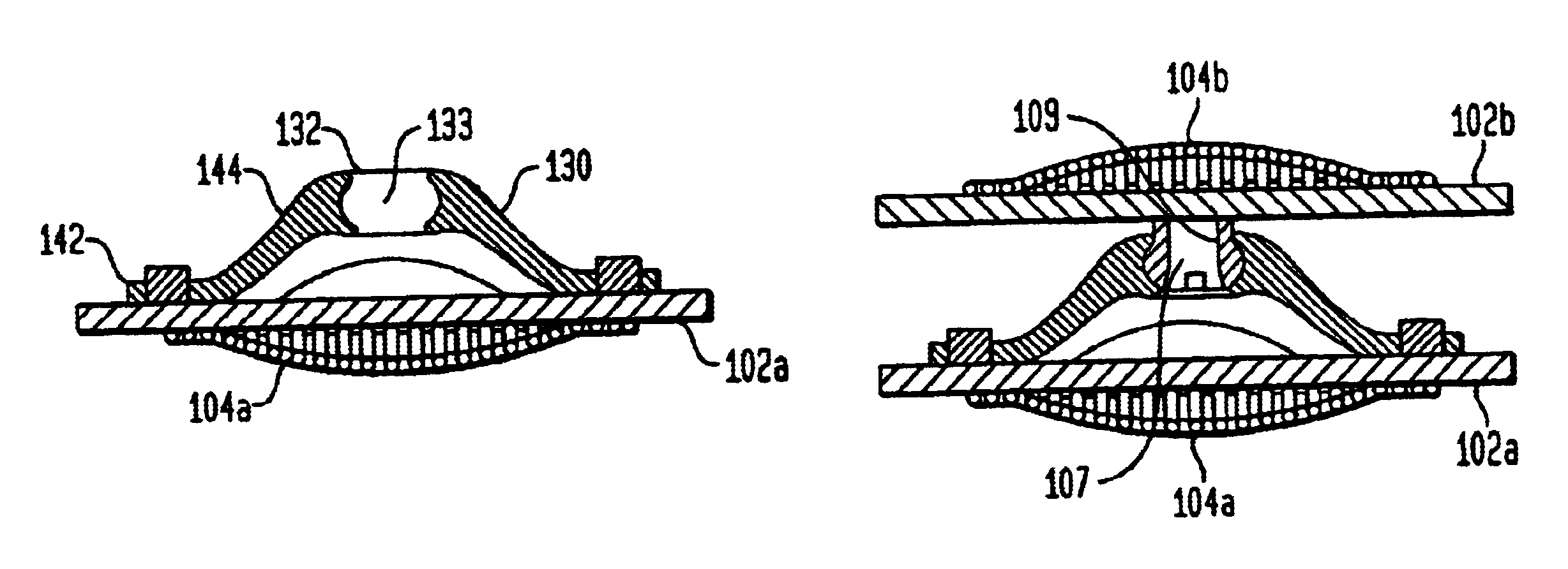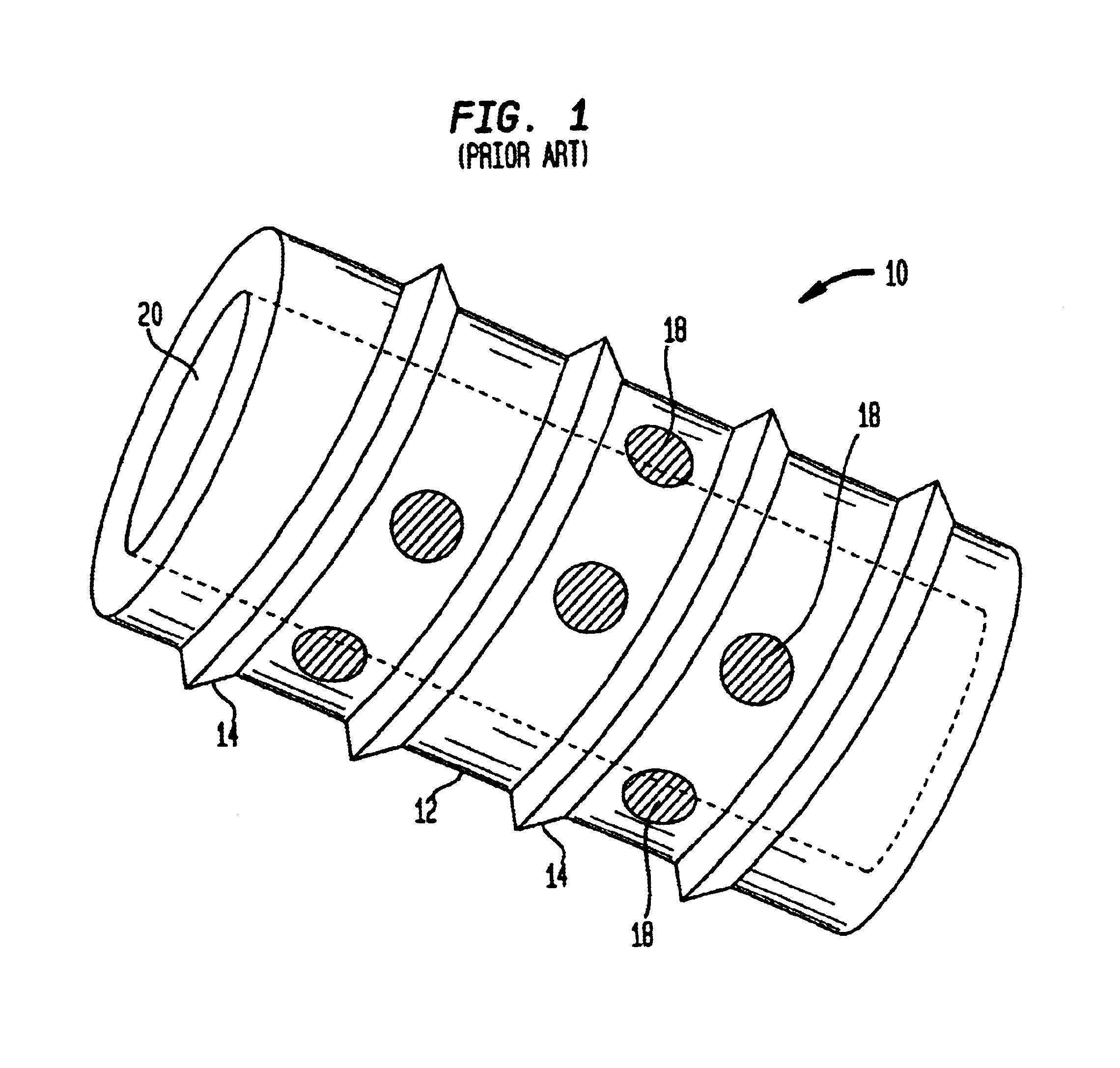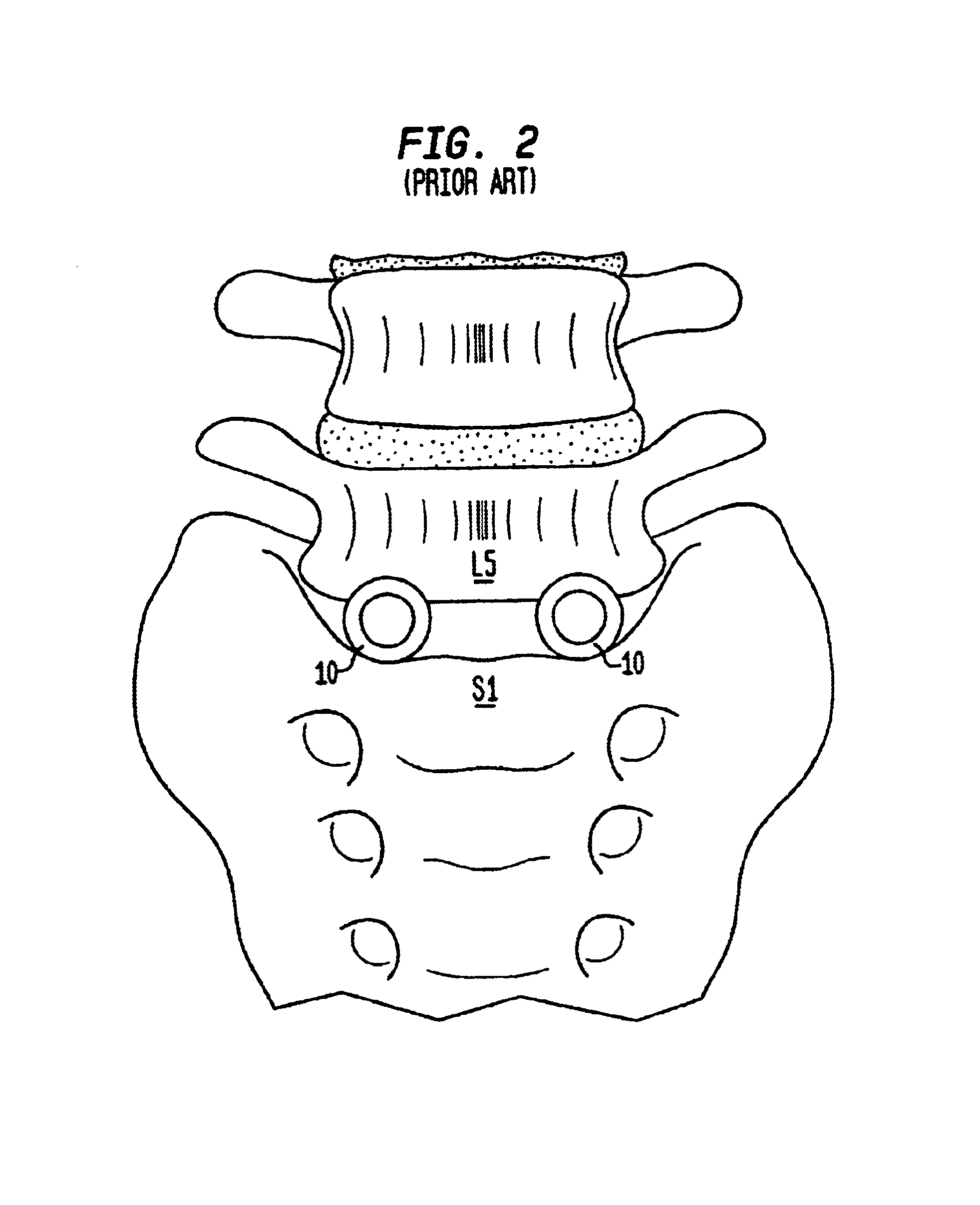Intervertebral spacer device having a domed arch shaped spring
a technology of intervertebral spacer and domed arch, which is applied in the direction of joint implants, prostheses, surgery, etc., can solve the problems of collateral injury to the patient's spine, restrict the overall flexibility of the spinal column, and restrict the normal motion of the patient, so as to eliminate the capacity for deflection
- Summary
- Abstract
- Description
- Claims
- Application Information
AI Technical Summary
Benefits of technology
Problems solved by technology
Method used
Image
Examples
first embodiment
[0026]Referring now to FIGS. 3a and 3b, side cross-section views of the top and bottom plate members 100a 100b of the present invention are shown. More particularly, in this embodiment, the upper and lower plates 100a,100b are nearly identical. As the device is designed to be positioned between the facing surfaces of adjacent vertebral bodies, the plates include substantially flat surface portions 102a,102b which seat against the opposing bone surfaces. In addition, the plates are to mate with the bone surfaces in such a way as to not rotate relative thereto. It is, therefore, preferred that the plates should include a porous coating into which the bone of the vertebral body can grow. The most desirable upper and lower plate surface porous feature is a deflectable wire mesh into which the bone can readily grow, and which mesh 104a,104b will deform to seat into the concave upper and lower bone faces. (Note that this limited fusion of the bone to the base plate does not extend across ...
second embodiment
[0031]Referring also to FIG. 5, in which the fully assembled second embodiment of the present invention is shown, the combination and assembly of this embodiment is now provided. The deflectability of the ball-shaped head 107 of the post 105, prior to the insertion of the set screw 101, permits the head 107 to be inserted into the interior volume 133 at the peak of the domed arch strip spring 130. Subsequent introduction of the set screw 101 into the axial bore 109 of the post 101 flexibly couples the head 107 to the spring 130 by virtue of the head 107 not being compressible and removable from the central volume 133, but the post 105 being polyaxially retained in the socket 133. Ideally the post head 107 is locked loosely enough within the central volume 133 of the spring 130 such that anatomically relevant rotation of the plates 100a,100b remains viable. In alternative variation, however, it is possible to design the coupling such that the locking of the set screw 101 in the head ...
PUM
| Property | Measurement | Unit |
|---|---|---|
| restoring force | aaaaa | aaaaa |
| volume | aaaaa | aaaaa |
| flexibility | aaaaa | aaaaa |
Abstract
Description
Claims
Application Information
 Login to View More
Login to View More - R&D
- Intellectual Property
- Life Sciences
- Materials
- Tech Scout
- Unparalleled Data Quality
- Higher Quality Content
- 60% Fewer Hallucinations
Browse by: Latest US Patents, China's latest patents, Technical Efficacy Thesaurus, Application Domain, Technology Topic, Popular Technical Reports.
© 2025 PatSnap. All rights reserved.Legal|Privacy policy|Modern Slavery Act Transparency Statement|Sitemap|About US| Contact US: help@patsnap.com



